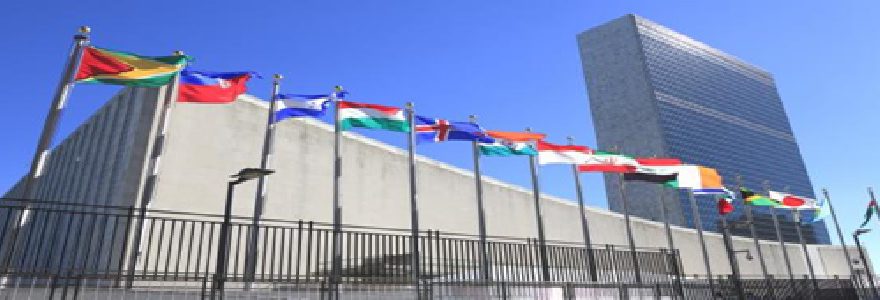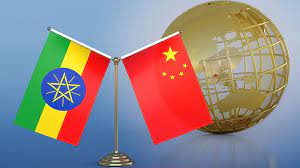
The current state of the world poses several global challenges including political instability, climate change, and global pandemics, which require a collective effort from the international community. To address these issues effectively, global cooperation is essential. The international community must recognize that no single nation or group of nations can overcome these problems alone.
Irrespective of geographic locations, cultures, and economic contexts, all nations would need to collaborate and cooperate to develop integrated solutions. The collective action and cooperation of countries can produce long-term and sustainable solutions that overcome the challenges of the world. International collaboration can help to share resources, pool scientific and technological expertise, and employ innovative solutions for the common good.
This strategy promotes inclusivity and equality among nations and promotes forward-thinking approaches that account for both short-term and long-term implications. Moreover, this approach prioritizes the idea of responsible leadership and the need to work together in solidarity. This requires shared responsibility while disregarding long-held biases and favoritism that hinder inclusive and collaborative efforts.
Additionally, the concept of mutual aid is essential where countries work together to lend a helping hand to nations that suffer from the impacts of global challenges. This approach entails established global mechanism and expertise sharing.
The global challenges that we face today whether political instability, climate change, or global pandemics, require a new way of thinking and operating that prioritizes global partnership over geopolitical competition. However, this can only be achieved with the necessary political will from leaders around the world. Leaders must recognize that geopolitical competition only serves to exacerbate the problems facing the global community.
The pursuit of global partnership, on the other hand, recognizes that we are all in this together and that cooperation and collaboration are essential to overcoming the challenges facing us today. To promote global partnership, leaders must prioritize diplomacy over military aggression. Diplomacy allows for peaceful resolution of conflicts, building trust and establishing relationships between nations. Military aggression can exacerbate tensions and create further divisions between nations.
Economic cooperation can also help reduce inequality and poverty and promote sustainable development further contributing to global stability and peace. Another important area where global partnership is needed is in addressing climate change. This requires countries to work together to mitigate the effects of climate change and transition to a green economy.
Global partnerships can also be crucial in promoting human rights, gender equality, and social justice. These issues affect people around the world, and we need the political will to work together to find solutions. This also involves acknowledging that the issues stem from systemic issues, including historic colonialism and patriarchy that require systemic solutions.
International institutions provide a framework for global cooperation and can help facilitate dialogue and consensus-building between nations. Leaders must recognize the important role these institutions play in promoting global partnership. Promoting global partnership requires leaders to listen to the voices of all people, especially marginalized and vulnerable populations. This means involving civil society and grassroots movements in decision-making processes and recognizing their vital contributions to global stability, peace, and prosperity.
The challenges facing us today require a concerted effort from the international community. To overcome these challenges, there must be a shift in political will towards global partnership over geopolitical competition. This requires prioritizing diplomacy over military aggression, promoting economic cooperation between nations, and addressing climate change, human rights, gender equality, and social justice.
Reform of the UN Security Council is crucial to make it more representative and adequately reflect the current global power balance. This includes increasing the membership of the Security Council particularly the addition of permanent seats for developing countries and regions that are currently underrepresented. Such an expansion of the Security Council would promote greater inclusiveness, diversity and could lead to more effective decision-making.
It is essential to have greater openness in decision-making processes and ensure that the UN is more accountable to its member states and the public. Additionally, the UN must address other issues such as the equitable mobilization of resources, address issues on the impact of environmental changes, and the need to uphold the fundamental principles of the rule of law, respect for human rights, and good governance.
The reform of the UN is essential to address the global challenges that the world is facing including economic development, climate change, and maintaining international security. Such reform will require strong leadership, political will and the mobilization of resources for its implementation. The UN reform is a crucial step in realizing the organization’s full potential to address the pressing issues of the 21st century and make progress towards a better and sustainable world for future generations.
In many parts of the world, violence and conflict have become a part of everyday life resulting in the loss of human life and widespread displacement of people. Political instability and the rise of extremist ideologies are also posing a significant threat to peace and stability. To address these challenges, the international community must come together with a unified purpose. This requires countries to put their differences aside and work towards common goals.
The UN decision-making process must be facilitated by engendering trust by addressing the disparate levels of development prevalent in member states and ensuring that all voices are heard. This would require the change of misguided perceptions held by some member states about other members, the creation of channels for dialogue, and established trust-building measures to eliminate the dangers of miscommunication and misunderstanding.
Therefore, in addition to UN Security Council reforms, there is a need to transform the UN into an organization that is more transparent, effective, and responsive to the needs of its member states.
African leaders called for collective work to ensure an inclusive multilateral system to renew global solidarity at the 78th session of the United Nations General Assembly (UNGA 78) which recently took place in New York.
Addressing at the UNGA 78, Deputy Prime Minister and Foreign Minister Demeke Mekonnen highlighted that reforming the UN Security Council is not a choice but an absolute necessity.
A reformed and representative Security Council that fits for purpose is vital, he said adding that allocating permanent seats for Africa as contained in its continental common position is politically and morally justified.
“Ethiopia calls all member states to recommit the charter of the United Nations. Maintaining the status quo will not advance our shared interest in ensuring peace and prosperity. We should collectively work for an inclusive multilateral system to renew our global solidarity,” he underscored.
Ethiopia and other developing countries have been advocating for the reform of the UN system as a whole. “We call for a more inclusive effective multilateral mechanism that works fairly for developing countries,” he added.
The DPM further emphasized that his country commands the effort of the UN Secretary General for the financing of the African Union peace support operation from assessed contributions and robust capacity building support should be provided to national law enforcement structures.
He also underlined the need for firm political commitment and renewed global partnership for the proper implementation of Agenda 2030.
The President of South Africa, Cyril Ramaphosa on his part mentioned that, the continent requires the UNSC to become more inclusive, representative, democratic and advance the interest of all nations as well as needs a renewed commitment to multilateralism based on clear rules and supported by effective institutions.
“This is a moment to proceed with the reform of the United Nation Security Council to give meaning to the principle of the sovereign equality of nations and to enable the council to respond more effectively to the current geopolitical realities,” he stressed.
He also emphasized that, the common African position is increasingly enjoying wide support on the reform of the Security Council highlighting that the process must move to text-based negotiation creating an opportunity for convergence between member states.
BY STAFF REPORTER
The Ethiopian Herald September 27/2023





